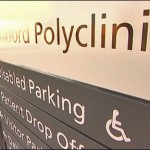 Polyclinics are not a common phenomenon in the English speaking world but in many central and eastern European countries they provide a great deal of primary and outpatient services.
Polyclinics are not a common phenomenon in the English speaking world but in many central and eastern European countries they provide a great deal of primary and outpatient services.
A polyclinic is in fact a very simple idea. It is an attempt to provide a range of medical services outside the hospital environment. These can include, but are not limited to, general practice (primary care), day surgery and a pharmacy. Often they provide diagnostic facilities typically available in hospitals. This can involve blood tests, x-rays and similar. Typically they are based in a large multi-storey building which is needed to house all their facilities.
The main reason for writing this blog is following a conversation with a friend last week. A few years ago she lived in Sweden and had cause of take advantage of polyclinics. When she had to take her daughter to their family physician (based in a Swedish polyclinic) she was able to have a complete diagnosis in around two hours of arrival. In the UK she estimated that the same process would have taken a couple of months.
Obviously public health policy should not be dictated by a conversation over lunch. However it does strike me that it is a strategy which may improve healthcare.
In fact in the UK (where I am based) there has been a brief attempt to introduce polyclinics. In 2007 Professor Lord Darzi of Denham KBE produced a report for NHS London which argued for the limited introduction of a form of GP lead polyclinics. In fact 7 polyclinic were opened in London UK providing a wide range of patient services including dentistry. However, Andrew Lansley, the incoming Secretary of state for Health, decided in 2010 that polyclinics were not the way forward and no more have been rolled out since that time.
The rationale, in favour of polyclinics, given before 2010 was in my view a powerful one. Essentially a polyclinic offers convenience to users of the service rather than to providers of healthcare. Which in and of itself is pretty revolutionary as far as British primary health care goes. It allows GPs and other primary health providers to work more closely with other healthcare professionals. People with, say, diabetes and other chronic health conditions can be treated in a more efficient manner. And, of course, it should take a fair amount of the burden off our already overburdened hospital system.
While implementation may prove expensive in the initial stages, it strikes me that cost saving could be large in the medium to long term. But most importantly it provides for better and faster care for patients which is the core aim of any health provision.
The reason that the polyclinic roll out was halted was that there were concerns that at present it was hard for polyclinic to take on the overspill from hospitals. Also that in fact it did not improve GP integration with other services. However this may be the by product of how few polyclinics were actually created.
So what do you think?
- Are polyclinics a good idea?
- Is your current healthcare provider as efficient as you would like?
- Have you ever used a polyclinic? If so what was your experience?
- Do they offer an opportunity for real healthcare and NHS reform?
Please feel free to add your thoughts and ideas in the comments box below.
Thanks in advance.
What’s the difference between that and urgent care and a PCP clinic?
IF they could be successful they would be of an amazing value as hospitals are overburdened as it is (specifically the emergency department) who use the emergency department as it were a clinic – reason being they have no insurance.
Another thing, what would be the difference between how a polyclinic operates vs. a PCP office because my PCP is innundated with people as it is. How would that help out general clinics as they already are?
The difference would be that for people that have an actual medical problem that needs to be investigated and solved vs a cough, cold, flu shot, or some other simple routine care need that doctors nowadays don’t seem to want to be bothered with anyway, they can go to this other facility that specializes in finding out what the problem is. Not only that, but they know how to communicate with each other and send you to the right person and you dont end up waiting for weeks or months because of a health care plan or medical group that is deciding if they are willing to pay the cost of it or not or if you actually need it. Plus, while you are there everything is still fresh in your mind and it all gets taken care of, you dont have to remember 3 months back to what some other doctor said or the one before that.
I think this is a great idea. Yex, I think the initial cost will be large. But they dont have to be everywhere at once. If they would just become integrated and replace some of the existing facilities, it would work. I think it’s more of a way of treatment, not a building issue. They need to re-focus how they see and treat the patients. And besides some scheduling changes, I think it can be done!! =)